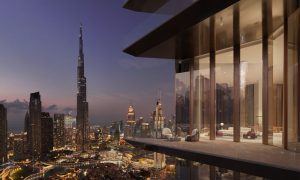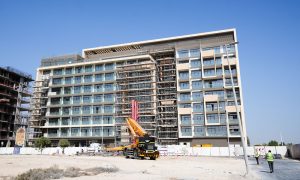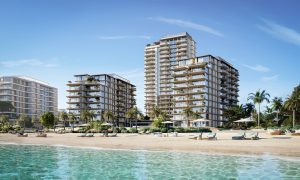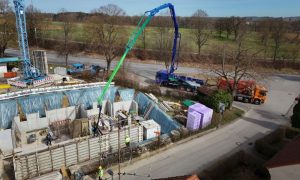KSA initiatives support increase in pilgrim numbers to stimulate Makkah real estate sector’ – CBRE
CBRE’s Market Outlook finds that hospitality sector benefiting from reduction of Hajj and Umrah fees, as well as relaxation of tourism visa requirements
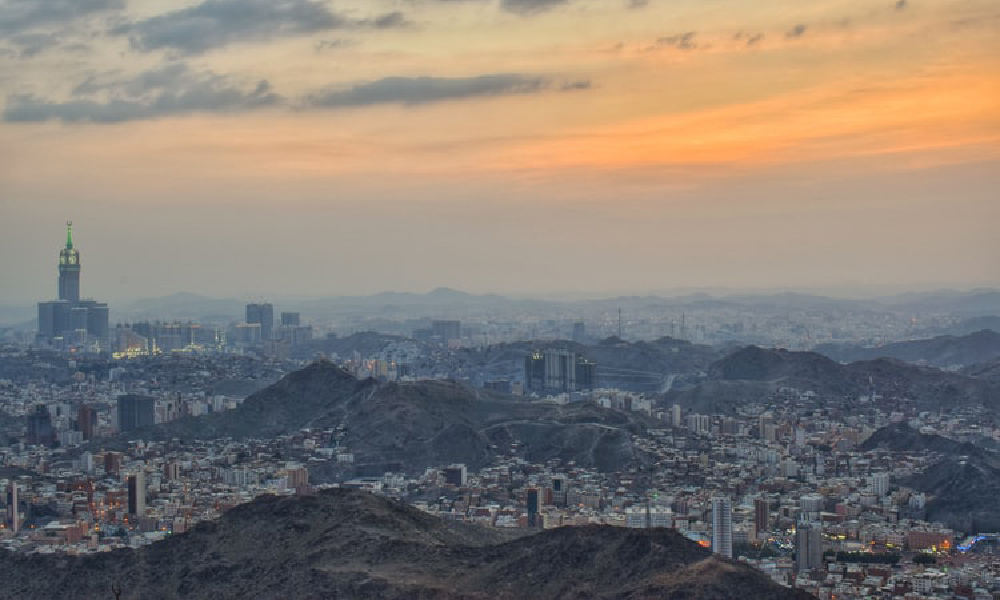
According to a new report by CBRE, the global real estate advisory firm, the relaxation of tourism visas and the reduction of Hajj and Umrah fees will further stimulate Makkah’s real estate market, thanks to increased visitor numbers to the Holy City.
According to CBRE’s Market Outlook, the number of pilgrims increased by 7% during the Hajj season of 2019, compared to the same period in 2018, this has supported demand in Makkah’s hospitality sector. Key new openings include the Double Tree Makkah Jabal Omar, which commenced operations at the end of the year.
In addition, a 2,600-key five-star hotel has been signed with Marriott as part of the Rabiat Al Naseem project, which is planned for delivery in 2022. The report added that a number of five-star hotels, located along Ibrahim Al Khalil Road, with direct access to the Haram, are also under construction and are expected to add a further 1,300 keys to the market.
The report also reveals that higher quality community retail development are attracting a rising number of popular food and beverage concepts, particularly in the AlAwali district. Furthermore, it said that key retail developments within the central area of Makkah have reduced their rents in order to support occupancy levels.
“Recent Government initiatives such as those which have eased visa restrictions have been instrumental in further increasing visitor numbers to the Holy City. The retail and hospitality sectors have witnessed the positive effects of increased religious tourism; whilst the office and residential sectors will also reap the benefits of increased economic activity and further Government investment,” said Simon Townsend, general manager of CBRE KSA and head of Strategic Advisory at CBRE MENAT.
Super regional and regional mall rental rates are down 1% year-on-year whilst organised street retail rental rates are down 5%. Over the medium to long-term, the relaxation of tourism visas is expected to support retail expenditure growth, positively impacting sales across retail centres catered to religious tourism.
The CBRE report also highlighted the effect that e-commerce is having on retail demand and performance across the market, shaping retail floorspace requirements and expansion plans across the city. Retail supply stood at 1.16 million sqm as of H2 2019, with a further 0.13 million sqm expected to enter the market by 2024.
Within the residential market, the Royal Commission of Makkah has elaborated a strategy to collaborate with key stakeholders to shape the future of Makkah City and the Holy Sites. The Commission is dedicated to improving quality of life and services to benefit the city’s residential population.
CBRE said that foreign investments are likely to support residential demand across high-end apartments located in the central area of Makkah, such as the Jabal Omar Development. Developers across Makkah are increasingly focused on affordable and mid-income residential project initiatives with the Ministry of Housing.
The outlook also highlights an increasing number of masterplans in areas between the 3rd and 4th Ring Roads, with an increasing number of apartment transactions in the Al Nakheel masterplan. Residential supply stood at 473,000 units as of H2 2019, with a further 10,900 units expected to enter the market by 2024.
Historically, Makkah’s office market has been relatively small, however this sector is being positively impacted by major construction activities in the city, as these projects are expected to represent a key demand source in the Thaker and King Abdulaziz projects in particular.
CBRE reports that premium office buildings in Makkah are still lacking facilities and amenities when compared to Riyadh and Jeddah, as most of the stock is dominated by Government tenants holding specific requirements. Higher vacancy levels were recorded across numerous office buildings in the city in H2 2019, driven in part by the lack of smaller unit sizes featuring more efficient and economic layouts.
The majority of existing projects are of Grade B quality and are typically located with Al Shouqiah and Al Azizyah districts. Existing supply stood at 280,000 sqm of gross leasable area GLA) in H2 2019 with an additional 56,660 sqm of GLA expected to enter the market by 2024.
“There are a number of key construction projects underway in Makkah which will stimulate the real estate industry as a whole in the medium-to-long term, whilst continuing to support increased foreign investment across a number of sectors,” Townsend concluded.

